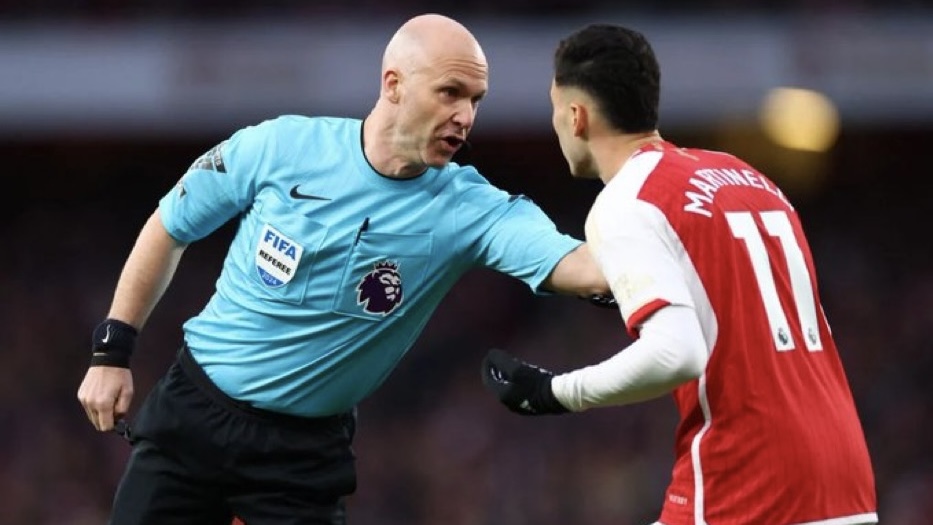Time-wasting has become a hot topic in the Premier League this season, with Arsenal taking center stage after their 1-1 draw against Brighton. Ethan Nwaneri’s yellow card for time-wasting marked Arsenal’s ninth booking for this offense in just 20 games—more than any other team in the league.
Arsenal’s Time-Wasting Stats Under Scrutiny
Arsenal, under Mikel Arteta, has faced criticism for their deliberate game management tactics, often seen as pushing the boundaries of the rules. This season, half of the Premier League teams have received three or fewer yellow cards for time-wasting, while six teams have only two or fewer. In stark contrast, Arsenal leads the chart with nine.
While some fans argue that referees unfairly target Arsenal due to their reputation for employing “dark arts,” the statistics provide a clearer picture. Arsenal ranks fourth in the league for the slowest average time to restart play (30.7 seconds), trailing only Nottingham Forest, Aston Villa, and Brentford.
Notably, Arsenal’s strategic delays often align with specific scenarios, such as managing a lead or playing with a man down. For instance, in their match against Manchester City in September, Arsenal slowed the game down significantly after being reduced to ten players in the 45th minute.
Arsenal’s Corners: Time-Consuming Yet Effective
A deeper dive reveals Arsenal averages 47.9 seconds per corner kick, the slowest in the league by a significant margin. Brentford comes second with 38.1 seconds. Despite the delays, Arsenal’s tactics have paid off; they’ve scored the most goals from corners (9) this season.
Bournemouth and Other Notable Offenders
Bournemouth ranks second for time-wasting bookings, with seven yellow cards this season. Interestingly, they hold the record for the fastest time-wasting yellow card in 2024-25 when Justin Kluivert was booked just four minutes into their Boxing Day match against Crystal Palace.
Other teams with six yellow cards for time-wasting include Chelsea, Everton, Fulham, Ipswich, Newcastle, and Nottingham Forest. Forest, the league’s slowest team to restart play, has strategically slowed games in critical moments, such as securing one-goal wins over top teams like Tottenham and Liverpool.
Teams Avoiding the “Dark Arts”
On the other end of the spectrum, some teams barely engage in time-wasting. Liverpool and Southampton have received only one yellow card each, while Leicester City remains the only team without a single booking for time-wasting this season. Interestingly, Liverpool, who have led for the most minutes this season (900 minutes), have largely refrained from slowing down play, sparking debates about their approach to game management.
Time-Wasting: Smart Tactic or Game Spoiler?
Time-wasting continues to polarize fans and pundits. While it can be infuriating for the opposition, it often proves to be a decisive factor in securing victories. As Arsenal pushes to close the gap on Liverpool in the title race, their willingness to exploit every second might give them an edge—or draw further criticism.
This detailed analysis of time-wasting trends in the Premier League sheds light on which teams are pushing the limits and who’s playing it fair, ensuring fans stay informed about this evolving tactical element.
